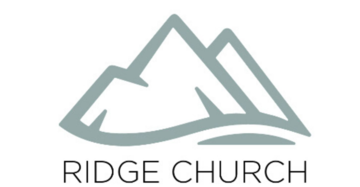Below we have answered many questions you might have about X-Groups. If you find that you still need an answer to a question and it's not listed below, please send email to Bobby Williams to get all your questions answered.
WHAT IS AN D-GROUP?
An D-Group is gender-specific closed group of 3 to 5 believers (including the leader) who meet together weekly for the purpose of accelerated spiritual transformation. A person joins the D-Group by invitation only.
A D-Group consists of people who desire a deeper walk with Jesus. The fruit of D-Group will multiply as it makes disciples who will then go on to make more disciples, just like Jesus called us to.
The format of a D-Group is not one of a teacher-student, but based around shared discussion. In their book The Invested Life, Joel Rosenberg and T.E. Koshy state, "A teacher shares information, while a discipler shares life; a teacher aims for the head, while a discipler aims for the heart; a teacher measures knowledge, while a discipler measures faith; a teacher is an authority, while a discipler is a servant; and a teacher says, ‘Listen to me,’ while a discipler says, ‘Follow me.’ "
HOW DO I FIND AN D-GROUP?
One of the best ways to find a D-Group is by being part of a serving team, a Lifegroup or through your existing friendships. For example, serving teams and Lifegroups are great "fishing ponds" to meet people that are seeking to grow in following Jesus with others at an accelerated pace.
Another way to find a D-Group is to form a new D-Group that you help lead. If you're interested in starting a new D-Group or would like help in finding an D-Group, email Bobby Williams
HOW DO I LEAD AN D-GROUP?
To lead a D-Group, first and foremost, you must be a Christ follower yourself. You do not need to be a great teacher or have all of the answers; in fact, it's not about having all the answers. It's about seeking out the answers together. The transparency to say, "I don't know the answer to that but let's find it out" can be powerful.
As a D-Group leader, you set the tone for the group’s atmosphere. You are not lecturing students; you are cultivating an intimate, accountable relationship with a few close friends.
HOW DO I CHOOSE GROUP PARTICIPANTS?
1- Begin by praying and asking God to show you people who are ready to follow Jesus or to follow Him at a deeper level
2- Look for people that seem to be hungry for wanting more of Christ in their lives; the Holy Spirit seems to be working in them, they're asking questions about spiritual things or they have had events happen in their lives that have brought them to seek out God.
3- Look for people that are teachable and coachable and not tied up in the traditions of religion
4- Look for available people. Super busy people can tend to make excuses about setting out the the time to be discipled and to disciple others
5- Don't ask people if you can disciple them. Instead, ask them if they would like to study the bible, pray together and follow Jesus on a deeper level in a smaller group
HOW MANY PEOPLE SHOULD BE IN A GROUP?
At the very least, it should be 2 but an ideal group is 3-5. 6 can be ok, but any more than 6 can make it difficult
HOW OFTEN SHOULD YOU MEET?
A group should meet no less than every other week. Ideally, it can work best when you meet each week for 1 hour to 1.5 hours.
WHAT DO WE DO IN A D-GROUP?
Here are some elements that your weekly meetings can include:
-Open with prayer. Ask each participant to present one prayer request at the start of each meeting. Assign a person to pray over the requests, and ask the Lord to sharpen each of you through your relationship.
-Have a time of intentional conversation by briefly sharing the highs and lows of the week. You can also share celebrations and praises.
-Quote your Scripture memory verses for the week.
-Study the Word of God together. A great way to do this is to share HEAR journals from the week. The goal of studying the Bible is to apply the Word of God. Remember, knowledge without application is useless information.
Here are some good application questions to utilize:
- What are you hearing from God, and what are you doing about it?
- What is God teaching you, and how is it affecting your life?
- Is there a promise to claim?
- Is there an action or attitude to avoid?
- Is there a principle to apply?
-Spend a few moments asking questions and keeping each other accountable. All accountability should be saturated with grace, not legalism. You can’t expect what you don’t inspect.
-Share prayer requests and close with prayer.
Don't be afraid to talk about other things that are not part of that week's scripture. Things that a person is going through in their life can be used to help shape them.
WHEN DO WE SEND THEM OUT TO MAKE DISCIPLES?
This is the most exciting part of a D-Group! When a person starts to meet, befriend and begin relationships with others that also want to pursue Jesus in a deeper, more accelerated way, it's all part of the multiplication process.
So in your group, begin with the end in mind. Your group should meet for 12 to 18 months, and they should expect that final date from the very beginning. Remember, the goal is for the men and the women of the group to multiply their lives into someone else.
Consistently encourage members of your D-Group to start new D-Groups where they live, work and play. Groups are not meant to grow larger and larger. They are meant to multiply and make new groups.
